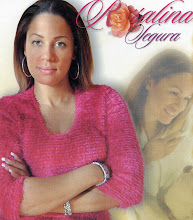Question a: Did you find this WebQuest informative and useful?
I found WebQuest very interesting and exciting, practical and am looking forward to using it with my ESL students in Junior High.
Question b: Which elements did you find to be most effective?
I believe the introduction is most important as it lays the foundation and establishes the focus of the webquest.
Question c: What (if anything) about WebQuests did you hope to find out from this resource that you didn’t get adequate information about?
I found this to be a very complete resource, one that I am bookmarking to be able to refer back to it specifically when I plan a webquest assignment. I even noted the experts which can be referred to I later have a question about this.
How would you go about bringing WebQuests into your teaching practice?
I would like to introduce webquest to my middle school students. Technology is welcomed and regularly used at my school. I envision an exercise involving researching authors or artists from their respective countries. I have 2 from P.R., 4 from D.R. and one from Yemin, so I personally would find it interesting. Perhaps I can use webquests to complete projects on a monthly bases.
One approach would be for you to look through the very extensive libraries of existing WebQuests that other teachers have developed already and have posted online for colleagues like you to adopt and adapt and use as a model in creating their own. Here are some links to WebQuest collections (A Google search will certainly turn up more!)- eMints http://www.emints.org/webquest/3-5health.shtml- University of Richmond http://oncampus.richmond.edu/academics/education/projects/- Kathy Schrock’s library http://kathyschrock.net/webquests/index.htm- Best WebQuests http://bestwebquests.com/Peruse the library and then choose one that you feel you could use ‘as is’ or better yet adapt for use in your own teaching practice.
Question d: Which one did you choose?
I selected Young Author's WebQuest, A WebQuest for Literature and Art, from the Richmond University website. This is a wonderful lesson plan because it frames the a writing project in a fun and interesting way which students should find more appealing. My students are difficult to motivate, and this should certainly help them in this process they find most difficult, writing. The link of my choice is below.
http://oncampus.richmond.edu/academics/education/projects/webquests/authors/
Question e: How would you adapt it? What would you create to support your special population students in using it?
I would want to include helps like a synonym list, because my students tend to use the simple words like mad, glad, sad, happy, etc. I am trying to get them to expand their vocabulary and become more comfortable using more selective words.
Another approach would be for you to create your own WebQuest from scratch. There are online tools to support teachers in doing this Here’s 1 – you’ll find others in the resources list below Let's start with a YouTube Tutorial on this approach and the recommended resource: http://www.youtube.com/watch?v=FnJ2moNmbdk And the resource in the tutorial… http://webquest.sdsu.edu/designpatterns/all.htm
Question f: Watch the video, explore the resource, and give your opinion of both: (or select another WebQuest creation tool/resource and give your opinion of that.)
I personally like video for instruction. I want to mention that I have recently rediscovered you-tube, not only as a music video source but now as an instructional tool as well, thanks to this class. I have found that it is a great resource for teaching any subject. Therefore, my opinion is that this video on webquest creations is very helpful and useful to me personally. A visual, and audio help, this video demonstrates what you need to do, and I like to watch examples along with the explanation. It makes teaching in this new way, via webquests, more accessible.
You now have a good overview of what WebQuests are and why so many of your teaching colleagues have gravitated toward them as one of the first technology-based teaching practices of high value. One more thing before we wrap this up… Here’s a recently recorded podcast interview with Bernie Dodge the man who is credited with having invented the WebQuest back in 1995. In this interview (roughly 15 – 20 minutes) Bernie reflects back on the popularity, place, and future of the WebQuest. He also reflects on what’s going on in Education currently and the function technology will continue to have in providing value.Bernie Dodge Interview Podcast URL: http://www.intelligenic.com/blog/?p=103 Listen to the podcast and then share:
Question g: What did you hear Bernie Dodge say that you feel was enlightening, valuable, surprising to you?
I liked his explanation of the development of the webquest model which made me understand its purpose of it, which is structure, as opposed to the traditional way the internet was and probably still is used by the majority of teachers. The traditional internet assignments for the class are disconnected. Meanwhile, the webquest is a solidly focused approach to navigating an assignment on the web. Webquests have all the benefits and novelty of using the internet, without the vague, unfocused approach to just surfing the world wide web searching for answers to questions assigned by the teacher. The latter has the potential to distract the user and soon find the student in other unrelated websites. I agree with Dodge in his analysis of the traditional classroom education being a bit removed from the adult real world. Webquests are a good way to bridge this.
Question h: And, having spent a few hours now studying WebQuests, what do you feel about this practice?
I have bookmarked four impressive Webquests sites with full complete lesson plans which I hope to complete as part of my curriculum this coming fall. Bernie Dodge’s webquest.org and the three mentioned in this assignment. Needless to say, this model is a wonderful gift to teachers with much merit and practicality. It is also gift to students, as ultimately it will enrich their education experience.
Tuesday, July 29, 2008
Subscribe to:
Post Comments (Atom)

No comments:
Post a Comment